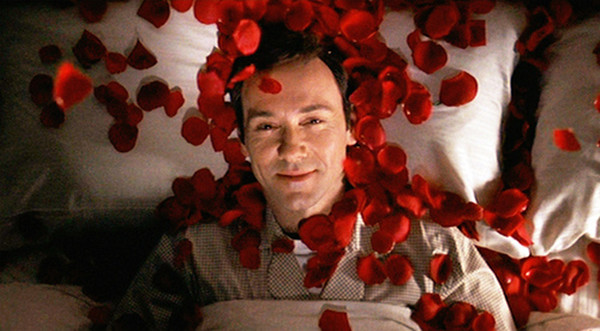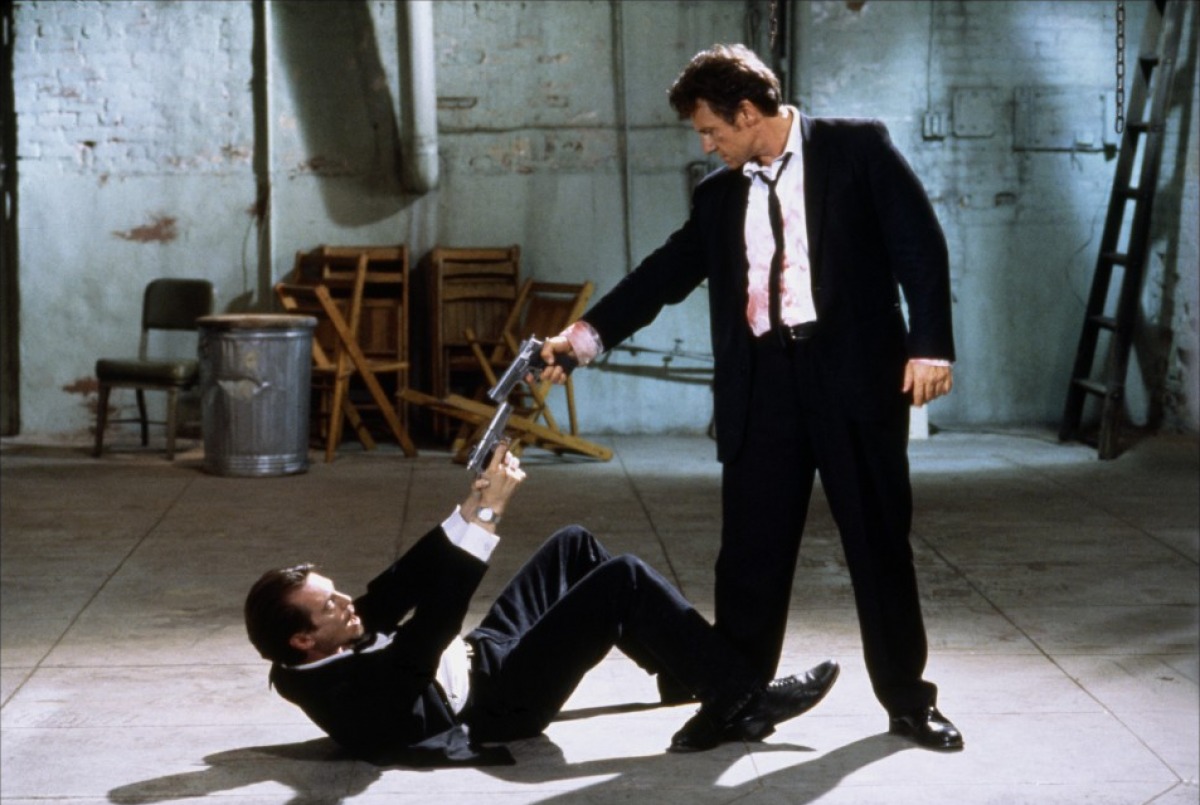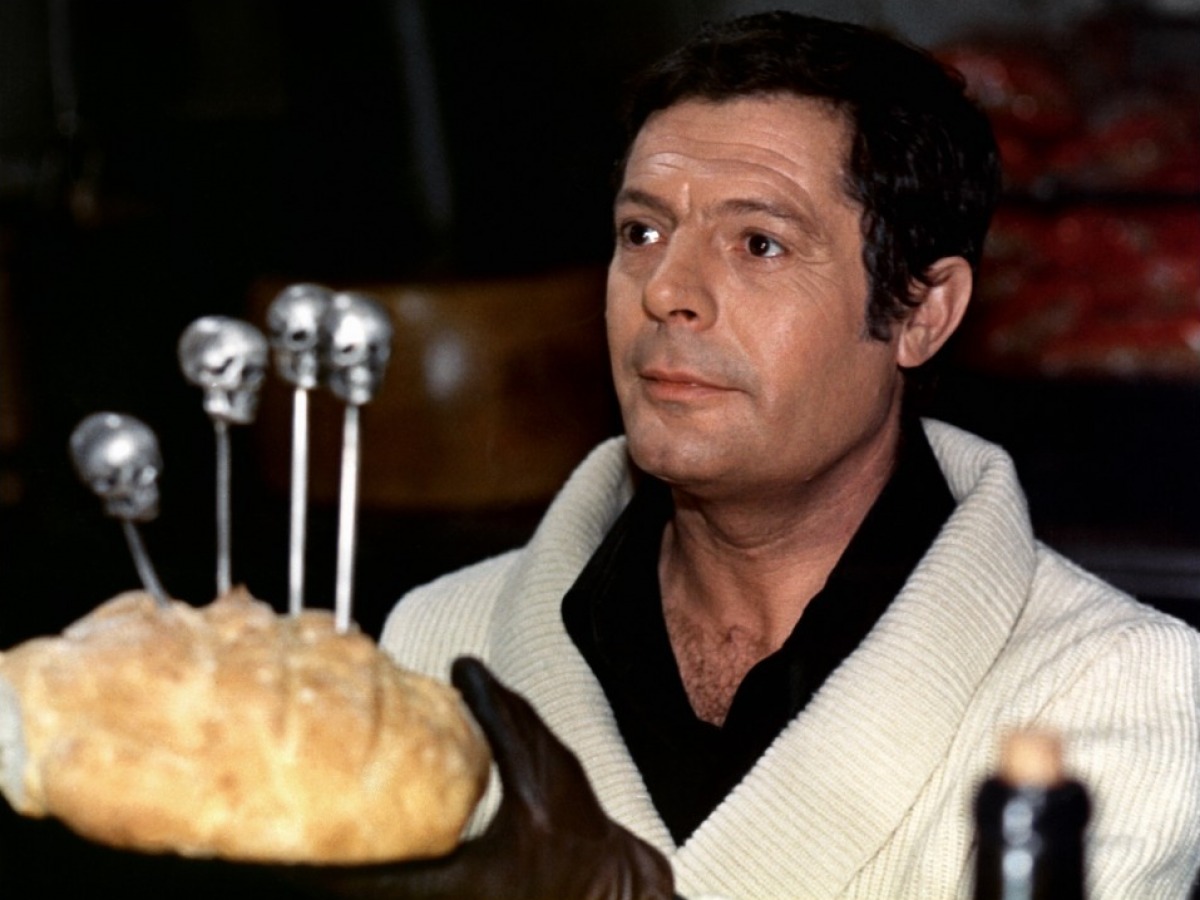
The word Nihil is Latin root of nihilism. Nihil means nothingness. Commonly nihilism is employed in the expression of Nietzschean philosophy, connected with Übermensch or eternal return theories.
Sometimes it is forgotten that Nietzsche promoted a “good” nihilism, as a starting point for new values; on the other side of the coin is the “bad” nihilism, embodied by the Marquis De Sade’s philosophy. So by connecting three key words, Nihilism, Sadism and Willful Nothingness, key influences relative to several filmmakers are achieved.
The Nihilistic world view is the expression of a pure void, ethically speaking, and cinema is a prime method of expressing this philosophy. There are a number of films which could fit into this category. Nihilism is a “behind the scenes” motivator and it is not seemingly uncommon to find movies based on this point of view.
At times this worldview is depicted as a status more than a purpose, or it is reduced to particular characters within the film. Nihilism is pure negation, of philosophy itself (and cinema as well), and theoretically speaking it is impossible to show the quality perfectly through the camera’s eye (to better understand this statement one might consider Carmelo Bene’s standpoints).
Often spectators misunderstand nihilism and confuse it with cynicism, skepticism or relativism. All of these words are related and have a common root, Nihil. To summarize: a Nihilist character will often be cynical, skeptical, relativist or any and all of these qualities; on the other side of this equation, a cynical character is not always a nihilist.
Once this is understood, it is easy to understand that cinema is full of various examples of nihilism. Sometimes directors clearly take on nihilistic-misanthropic viewpoints where nihilism is the central topic or the final aim of the film. Here is a guide to nihilistic films worth watching.
15. Fargo (Joel and Ethan Coen, 1996)
Imagine a film whose plot involves two crazy killers hired by a man with money problems, whose idea for resolving this problem is to kidnap his own wife. Imagine also that his wealthy father-in-law loves his daughter as much as his money. This sets the stage for a lot of blood, craziness and cynicism.
Fargo is not completely nihilistic, but it features a truly nihilistic character, one of the two killers, Gaer (played by Peter Stormare). At the end of the film, there’s no clear victory for justice, so the viewer will be left with the sensation of a no redemption ending due to the complete absence of values embodied by the killer. Fargo is a bit harsh and cynical, more than nihilistic. However, this film is one of the masterpieces of two nihilistic cinema makers: the Coen brothers.
14. American Beauty (Sam Mendes, 1999)
As people reach their middle years of 40 to 50 or so, they start to become fearful of passing time. This is a comprehensible feeling. Problems often start when someone refuses to act their age and tries to appear and act like a younger person. Fear of the passage of time is deeply connected to a fear of nothingness,or a fear of weakness.
One may try to handle the problem but when the problem is fought, it’s an already lost battle; the fighter will fall in the abyss of nihilism. Man is nothing compared to death. American Beauty is a film based on fear more than nihilism, but a second element of the film is the secret motivation of the main character Lester Burnham (amazingly played by Kevin Spacey). He wants something that he knows he cannot have anymore: youth.
13. Reservoir Dogs (Quentin Tarantino, 1993)
Six criminals are involved in a diamond robbery, one of them is an undercover policeman. This film is a famous Quentin Tarantino effort. What is the message of this film? This thought: blood begets blood. Death recalls death. No one can stop this endless spiral of violence. Justice and goodness are annihilated. This is a very crude form of nihilism but it’s so effective and clear-cut as to be clearly understandable.
There are several themes in this film and nihilism is not a visible philosophy in film history. Rarely is nihilism a central quest. This film presents a different circumstance; it is evident that nihilism constitutes a transparent basis of the plot. Except for Mr.Blonde (Michael Madsen), the characters are not openly nihilistic but they routinely accept the evil side of the world, because they’re criminals.
12. Fear and Loathing in Las Vegas (Terry Gilliam, 1998)
Hunter Thompson, godfather of Gonzo journalism, joined forces with director Terry Gilliam with amazing results. This film is a psychedelic trip to Las Vegas, which ends up an abyss of drugs and delirium.
Fear and Loathing in Las Vegas perfectly illustrates the failure of an entire generation, or better yet, an entire revolution: the hippie revolution of the 1960s. Hunter Thompson, documenting with his delirious writing style, decides to ingest all the possible (and impossible) drugs of this earth along with his lawyer in a hotel room in Las Vegas.
Terry Gilliam does a fine job of replicating the book’s nihilism. Johnny Depp, portraying Thompson, gives one of his best performances. On first viewing, a lot of people could not understand the message of this film. This is not just a delirious film about drugs but something more besides. In the view of this film the entire American dream ended in drugs and nothingness.
11. American Psycho (Mary Harron, 2000)
A wealthy 1980s Wall Street businessman, Patrick Bateman, has a problem: he kills anyone who bothers him in any way. The plot is so simple that it’s also impossible not to show nihilism in any clearer way. This is the first movie on this list which focuses on the pure sadism of the main character (played by Christian Bale).
In particular it perfectly shows the impossibility of redeeming the crazed serial killing main character. Nihilism is represented in a classical spiral form, which absorbs everything surrounding it. Mary Harron also inserts an ironic quality which gives a special touch to the complex, almost nietzschean tale.
10. Match Point (Woody Allen, 2005)
Virtually all of Woody Allen’s films feature nihilistic stories or nihilistic characters. With this dramatic film, Allen reached the pinnacle of nihilism. Imagine someone killing someone else with no justice coming to render punishment. This is not a happy world vision. Allen brilliantly creates a psychological drama without any redemption as is present in other of his films.
Match Point shows the cruelty of man in its purist form. Allen not only show how evil can subvert justice but also how the sustainers of justice can end up being far from “winners”. This film cites Russian author Fyodor Dostoevsky, but Allen mocks him by inverting the destiny of his Crime and Punishment character Raskolnikov: no prison, a “happy” ending for the killer and no triumph of love.
9. La Grande Bouffe (Marco Ferreri, 1973)
Marco Ferreri is another masterful director of nihilist films and characters. In this movie he creates one of his best films. Four rich bourgeois decide to meet together in a villa. What is their purpose? Death by eating and other indulgent vices is the plan. This deceptively simple plot renders a pearl in the cinematic ocean and will give much more to the viewer after rethinking the film carefully.
The first half of the movie is openly comic, almost grotesque, while the second half becomes decidedly absurd and sad. When the time comes in which someone decides to die, the choice ends in a strange way to die, that of a healthy, reasonable person participating in facing death. Marco Ferreri has shown the way in which wealth can bring false happiness. The best part of the film concerns the way Ferreri switches from the comic tone of the first part to the melancholy tone of the second part seamlessly.






